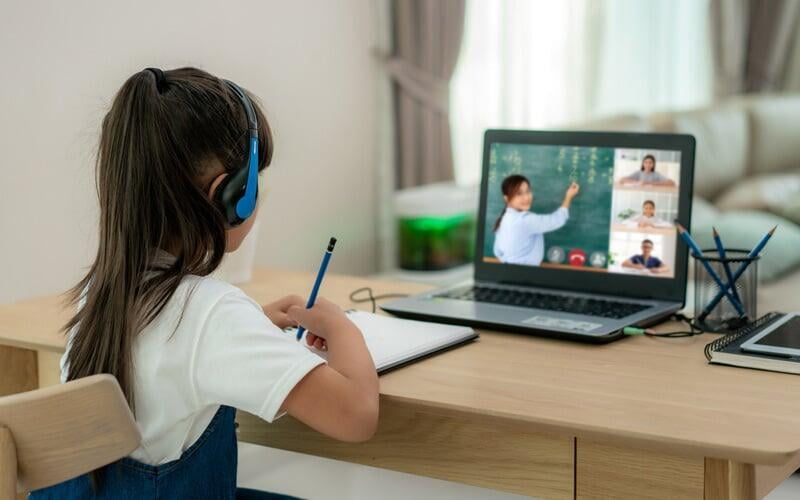As the effects of the latest Covid-19 wave continue to be felt across Vietnam, many parents, students and teachers are looking at the start of the 2021 academic year with uncertainty. For students enrolled in many international schools, online teaching will resume but for how long, nobody knows. Young learners and teachers at many of the country’s kindergartens have no idea when they will return to the classroom, and many students who usually attend public schools are anxiously waiting to hear if they will make the move to online learning, something that they have not adopted so far.
Whilst the uncertainty is understandable, with the current Covid-19 wave proving less manageable and far more damaging than previous ones, the effects that continued disruption have on the children and young adults in Vietnam are something that all of us should be aware of.

Of course, the most obvious issue is that of disrupted learning. For many students, particularly those who do not have unrestricted access to online learning facilities, continued school closures mean that their opportunities for development are severely restricted.
Other students may also suffer from reduced levels of nutrition as they can no longer rely on receiving the meal that is provided when at school.
However, it may be that the greatest issue facing young people as a result of the ongoing restrictions is a decline in their mental health. For many students, school provides a routine that helps them cope with mental health issues and when schools are closed, access to support networks is, at best, disrupted, at worst, unavailable. For others, the lack of social interaction can make the challenges they are facing more daunting.
Even for students who have not experienced mental health issues in the past, a continued lockdown period can lead to them adopting negative coping strategies, including overworking, disrupted sleeping patterns and spending too much time online.
For parents who are concerned that their child may be struggling with the current situation, there are, however, steps that can be taken to ensure that your child feels supported through this difficult time.
Understanding Unfamiliar Emotions
For many young people understanding their emotions will be an essential step to adjusting to the current situation. Worry, lethargy and anger may be unfamiliar feelings for some young people so understanding and managing their response to social distancing may be something you need to support them in. The mental health charity Mind suggests a number of approaches to help young people positively manage their emotions , including an emotions wheel that may help them to articulate exactly how they are feeling.

A return to school, albeit online, will help students recover some sense of routine as they will need to be ‘in class’ and complete homework as required. However, without the ability to run around the playground, chat with friends or take part in a PE lesson, it is unlikely that students will feel as though things are ‘normal’. To combat possible feelings of frustration and lethargy, encourage your children to do something ‘active’ at least once a day to help improve mental and physical health. Child protection organisation Child Safe has compiled a variety of resources that will keep children of all ages active, even when space is limited!
Keeping Socially Active
In addition to keeping active, encourage your children to spend time communicating in a social situation, rather than an academic one. Organising social activities online with other parents and children can help to give the younger members of your family a much-needed sense of community when social distancing restricts your ability to meet up in person. Spending time playing fun and competitive online games such as Pictionary, Uno and Connect 4 can be a welcome addition to an online school day.
Opening Communication Channels
Perhaps most importantly though, is to simply communicate with your child. Letting them know that you understand that times are tough, can help them to feel less isolated. Showing an interest in what they are doing and providing them with the positive feedback that they are used to receiving from teachers can help improve motivation. Explaining to them what you are doing as you work from home can help them to understand your situation is not ‘normal’ either.

If your child seems to be struggling and you’re not sure what to say, Young Minds, a children’s mental health charity, has suggestions for ways to start a conversation and of course, your child’s school may be able to offer specific support with the stresses of distance learning.
Without the usual ‘Back to School’ fanfare that welcomes the start of a new academic year, it can be easy to feel that time is standing still. Without the adjustments to new classrooms, new uniforms and new campuses, it may feel like nothing has changed. But it is important to remember that things are changing and if we can all stay strong through these challenging times, we can be hopeful that by the end of the 2021/22 academic year, the future will once again be looking bright. Not just for our students, but for everyone.

